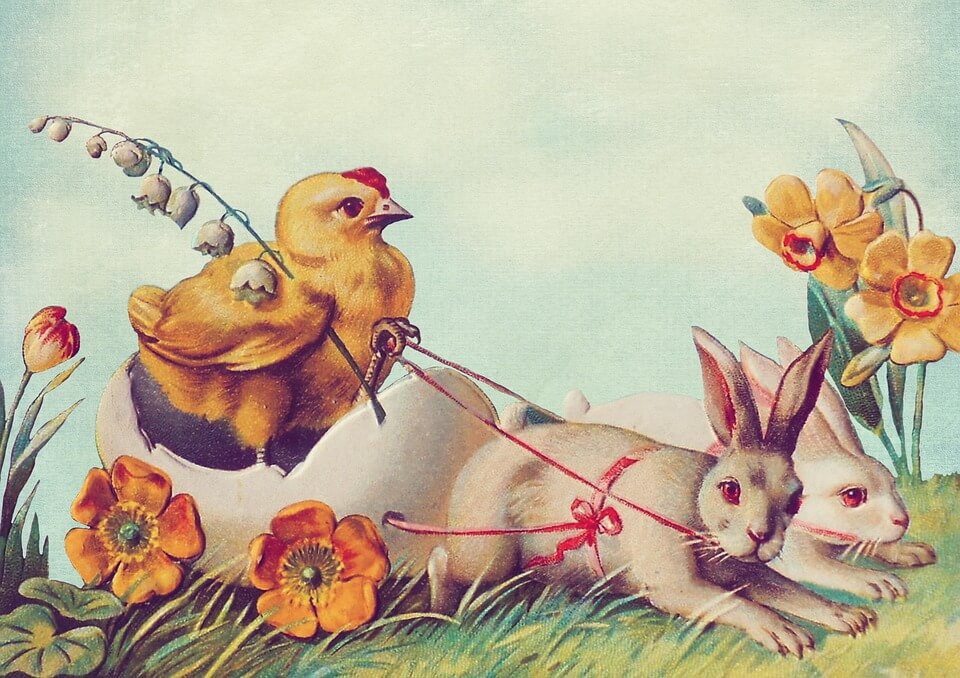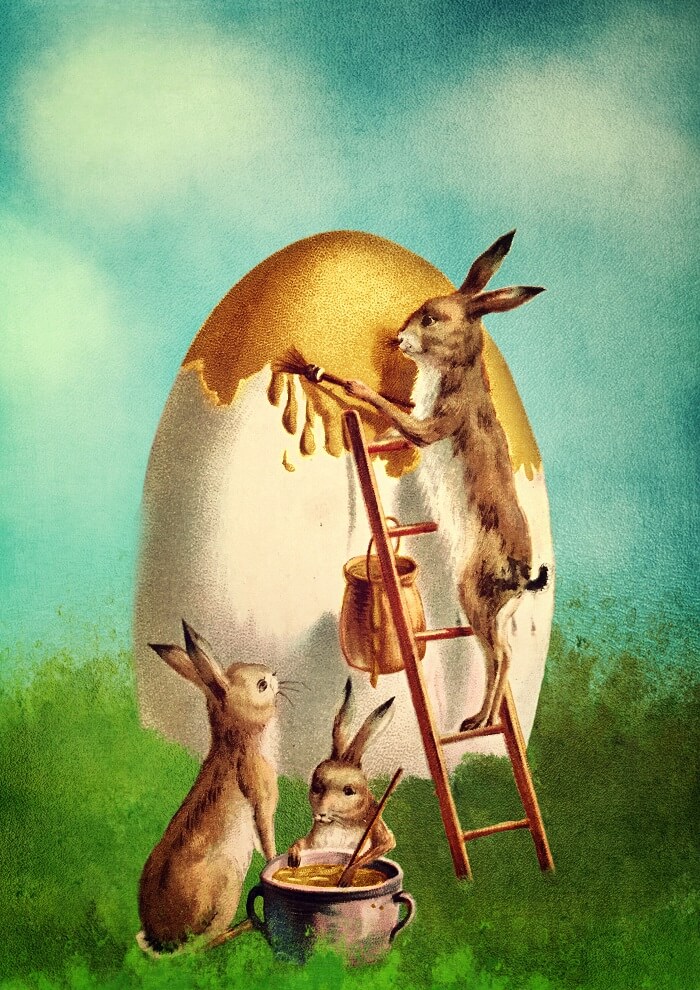Discover the significance of Easter Monday and learn about its history and cultural traditions. Get inspired and make the most of this public holiday with our guide to Easter Monday.
Easter Monday is the day after Easter Sunday, which is celebrated as the first day of the week-long Easter season in the Christian calendar. It is a public holiday in many countries and is observed by both religious and secular traditions.
In Christian tradition, Easter Monday is considered to be part of the Easter Triduum, which includes Good Friday, Holy Saturday, and Easter Sunday. It marks the beginning of the Easter season and the end of the Lenten season, which is a period of fasting and penitence.
In many countries, Easter Monday is also associated with various cultural and secular traditions, such as Easter egg hunts, parades, and other festivities. In some countries, it is also a day for outdoor activities, such as picnics and family gatherings.
When is Easter Monday
Easter Monday is the day after Easter Sunday, which falls on the first Sunday following the first full moon after the vernal equinox (around March 21st). Therefore, the date of Easter Monday changes every year. Here are the dates for Easter Monday for the next few years:
- 2023: April 10th
- 2024: April 1st
- 2025: April 21st
- 2026: April 6th
- 2027: March 29th
Note that the above dates are based on the Western Christian calendar. In the Eastern Orthodox Church, Easter Monday is celebrated on a different date, according to the Julian calendar.

Source: pixabay.com
History of Easter Monday
The history of Easter Monday dates back to early Christianity and has evolved over time as various cultures and traditions have added their own customs and celebrations to the holiday.
In the Christian tradition, Easter Monday is considered to be part of the Easter Triduum, which commemorates the passion, death, and resurrection of Jesus Christ. According to the Bible, after Jesus was resurrected on Easter Sunday, he appeared to his disciples on several occasions over the next 40 days. Easter Monday marks the second day of this period and is therefore considered an important day in the Christian calendar.
In many countries, Easter Monday is also associated with various cultural and secular traditions. For example, in some European countries, it is traditional to have an Easter Monday procession, in which a statue of the Virgin Mary is carried through the streets. In other countries, such as the United States and Canada, Easter Monday is often observed as a public holiday and is a day for family gatherings, picnics, and outdoor activities.
Overall, Easter Monday has a rich history and cultural significance in many parts of the world, and its celebrations and traditions continue to evolve and adapt to modern times.
Easter Monday Timeline
Here is a timeline of some of the significant events and traditions associated with Easter Monday:
1st century AD: According to the Bible, Easter Monday marks the second day of the period in which Jesus Christ appeared to his disciples after his resurrection.
4th century AD: The Council of Nicaea, a gathering of Christian bishops, established the date of Easter as the first Sunday after the first full moon following the vernal equinox.
5th century AD: The Eastern Orthodox Church began celebrating Bright Monday, which is the second day of the Paschal (Easter) season, with a special liturgy and other observances.
8th century AD: In England, a tradition called “lifting” or “heaving” was observed on Easter Monday, in which men would lift women up in the air as a symbol of Christ’s resurrection.
16th century AD: In Germany and other countries, Easter Monday became known as “Emmaus Day” and was associated with the biblical story of Jesus appearing to two disciples on the road to Emmaus.
19th century AD: In the United States, Easter Monday became a public holiday for government employees, in recognition of the importance of Easter in the Christian calendar.
20th century AD: In many countries, Easter Monday became associated with various secular traditions, such as Easter egg hunts and parades.
Today, Easter Monday continues to be celebrated in many parts of the world, with a variety of religious and secular traditions and observances.

Source : pixabay.com
How to Celebrate Easter Monday
There are several ways to celebrate Easter Monday, depending on your cultural or religious background. Here are some ideas:
- Attend a church service: If you are Christian, attending a church service on Easter Monday can be a great way to continue the celebration of Easter. Many churches offer special services and events on this day.
- Have a family gathering: Easter Monday is often a public holiday in many countries, making it an ideal day for families to gather and spend time together. You could plan a family picnic, barbecue, or other outdoor activities.
- Participate in an Easter egg hunt: Easter egg hunts are a popular tradition on Easter Sunday, but they can also be a fun activity on Easter Monday. You could organize an egg hunt for your children or participate in a community event.
- Attend a parade: Many communities organize Easter Monday parades, with floats, music, and other festivities. Check with your local community or city to see if there are any events planned in your area.
- Volunteer: Easter is a time of giving and helping others. You could volunteer at a local shelter, food bank, or other charity organization to give back to your community.
- Have a traditional meal: In some cultures, there are traditional foods that are eaten on Easter Monday. For example, in Italy, it is common to have a picnic with hard-boiled eggs and a type of bread called “Easter pizza.” Research your cultural background to see if there are any traditional foods you can incorporate into your celebration.
Overall, the key to celebrating Easter Monday is to spend time with loved ones and to continue the spirit of renewal and hope that comes with Easter.
Why Easter Monday is Important
Easter Monday is important for several reasons:
- Continuation of the Easter Celebration: Easter Monday is part of the Easter Triduum, which is a three-day celebration that commemorates the passion, death, and resurrection of Jesus Christ. It is a continuation of the Easter celebration, which began on Easter Sunday.
- Religious Significance: For Christians, Easter Monday is an important day in the religious calendar as it marks the second day of the Paschal (Easter) season. According to the Bible, it was on this day that Jesus appeared to his disciples after his resurrection.
- Public Holiday: In many countries, Easter Monday is a public holiday, which means that many people have the day off from work or school. This allows for family gatherings, outdoor activities, and other celebrations.
- Cultural Traditions: Easter Monday is associated with various cultural traditions and customs in different parts of the world. For example, in some countries, it is a day for outdoor activities, such as kite flying or horse racing. In other countries, it is a day for feasting and parades.
- Renewal and Hope: Easter Monday, like Easter Sunday, is a time for renewal and hope. It is a reminder that, no matter how difficult or challenging life may be, there is always the possibility of new beginnings and new life.
Overall, Easter Monday is an important day for both religious and secular reasons. It provides an opportunity for people to come together, celebrate, and renew their faith and hope in the future.